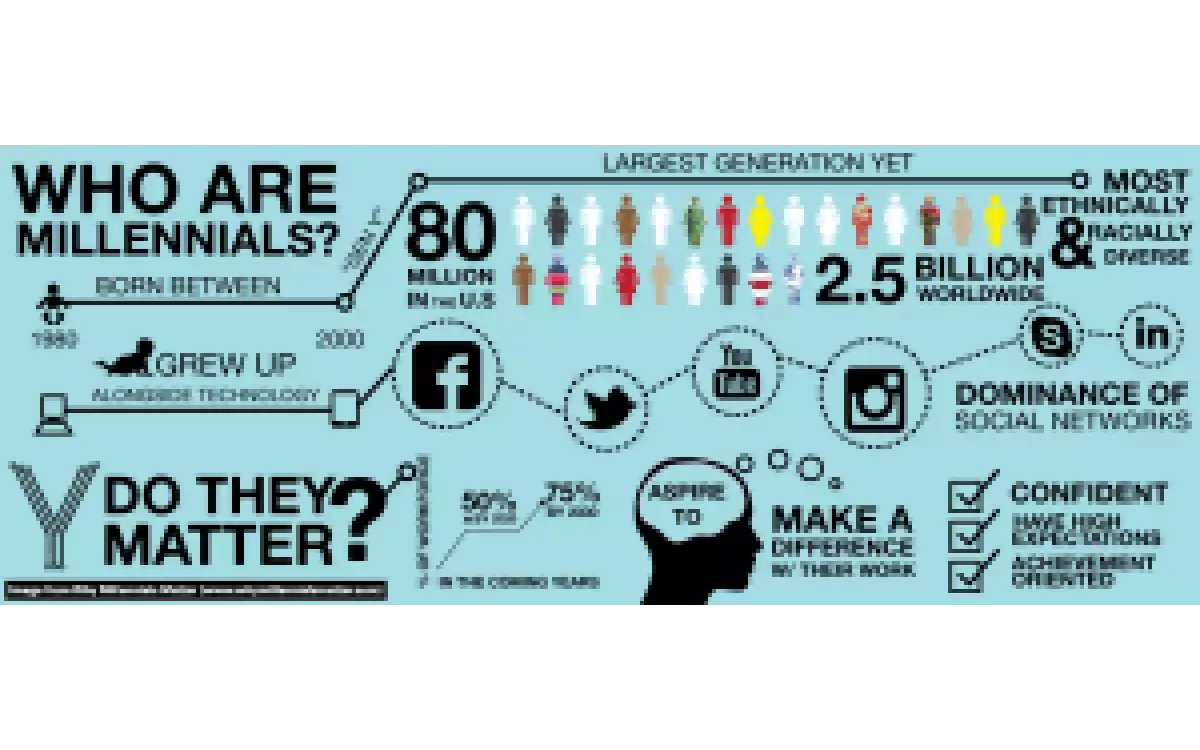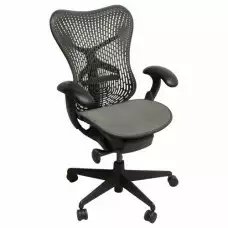What to know about Millennials:
Millennials are the generation following Generation X, and according to the U.S. Census Bureau, they have surpassed Baby Boomers as the nation's largest living generation.
 Image from Why Millennials Matter
Image from Why Millennials Matter
By 2020, over 50% of the workforce will be made up of millennials. Let me tell you, we are equipped and ready to take over the world. Our generation is investing hundreds of thousands of dollars into higher education for a piece of paper that we hope will elevate our status in society - opening exclusive doors and allowing us to connect with powerful people. We want jobs that will make our financial investments worth it, and we're on the prowl.
How companies are taking action:
In order to be front runners in the competition for the most talented millennials, more and more companies are furiously joining the "revamp" bandwagon.
Companies are researching the latest trends and fads to evolve from being outdated to relevant. As we would say, they're trying to be woke. It's difficult though; current company owners come from our parents or our grandparents' generations. They have completely different backgrounds, perceptions, likes, and dislikes from, us, millennials. Therefore, at the end of the day, companies want comprehensive feedback from the source itself.
The research:
So from all the research that has been done, what has been concluded about what millennials look for when applying to companies, and what ultimately convinces them to accept an offer?
Based on a 2016 LinkedIn survey with 13,300 millennials, it was found that 93% of them are eager to learn about job opportunities. Enthusiasm! However, compared to other generations (Gen X and Baby Boomers), when they hear about a job, they don't know anything about the company. Accordingly, the top obstacle to them accepting a job is not knowing enough about what the company is like. The other big obstacles are applying and not hearing back as well as not fully understanding their future job's role.
In order to find out more about a company, millennials are more likely than other generations to follow it on social media. I mean, the company has to have an Instagram aesthetic...duh? But, more seriously, as an avid Facebook and Instagram user, I can completely attest to turning to social media to garner more information about a company. Unfortunately, often times than not, I am usually disappointed by the company's lack of content and its transparent inability to navigate these platforms. It's clear they don't have a social media coordinator who is up to date on the latest trends.
The number one piece of information millennials are trying to look for is a company's culture and values. What would my daily schedule be like? What kinds of people would I be working with? Additionally, they want to know what perks and benefits the company can offer them. A company that offers the best compensation and benefits is the winning one. We're jumping on that offer!
These kinds of millennial analyses are extremely helpful for a company hoping to attract millennials. Because now they know that 1. They have to up your social media game, and 2. They need to add more content about the company's culture and values. This means having more transparency on what working at the company is really like. Yea, a convoluted mission statement that makes a company seem fancy and legitimate is great, but that only goes so far to make an impact on a millennial. Lay out some plain facts. Be real.
SAP, a multinational software corporation, changing its game:
SAP knew it had to switch its method of employer branding in order to compete for millennial talent.
As a tech company competing for people looking at huge companies like Apple, Facebook, and Google, it needed to work even harder to get its name out there. SAP completely redid its website to make it much more visual, mobile friendly, and customizable to a specific candidate.

Image from SAP
It also made its presence greater on social media platforms such as Instagram, Facebook, Twitter, LinkedIn, and YouTube by uploading pictures and videos that showcased real employees and their stories.

Image from Instagram
Advice from a millennial:
While all millennials aren't the same, here's an advice from one millennial.
Relatability is key when it comes to connecting with millennials. We're kind of self-absorbed.

Image from WordPress
Studies reveal that millennials aren't as purpose driven as people may think; they really just want to know what the company can do for them. Therefore, sharing stories of current employees are of great use to them because they can see themselves in these employees. Do I want to be like that person in the video? Can I connect to this company?
A lot of the values outlined above can be found in start-up companies. Millennials flock to trendy new start-ups because of their exciting work culture. Millennials love to take risks, to stay ahead of the curve, and to be work in a relaxed, collaborative environment with flexible hours. They get all of this in startups, which a lot of the time, are full of other like-minded millennials, too. Companies are starting to mimic these newer companies through cosmetic changes such as ergonomic chairs (Courtesy of Beverly Hills Chairs), employee happy hours, table tennis, and fresh juice cafes. Yes, yes, and yes to all of that!
At the end of the day though appearances aren't everything. Even millennials know that there's a time to get serious, and this is when they're trying to make a legitimate living at a reputable company. It's not all fun and games. No matter how cool a company's offices may be, if it's not producing top content that raises its name value, none of the aesthetics are important. The aesthetics only play a deciding factor when two companies are neck and neck in regards to their reputation and their offerings. Millennials love the fluff, but they need the meat too. Give them work that makes them think critically and engage meaningfully.
We really do want it all. We need the work but we also need the fun. Don't underestimate our skills. Evaluate us without a bias instead of just treating us like a stereotypical millennial. We're, like, definitely not, like, shallow.








